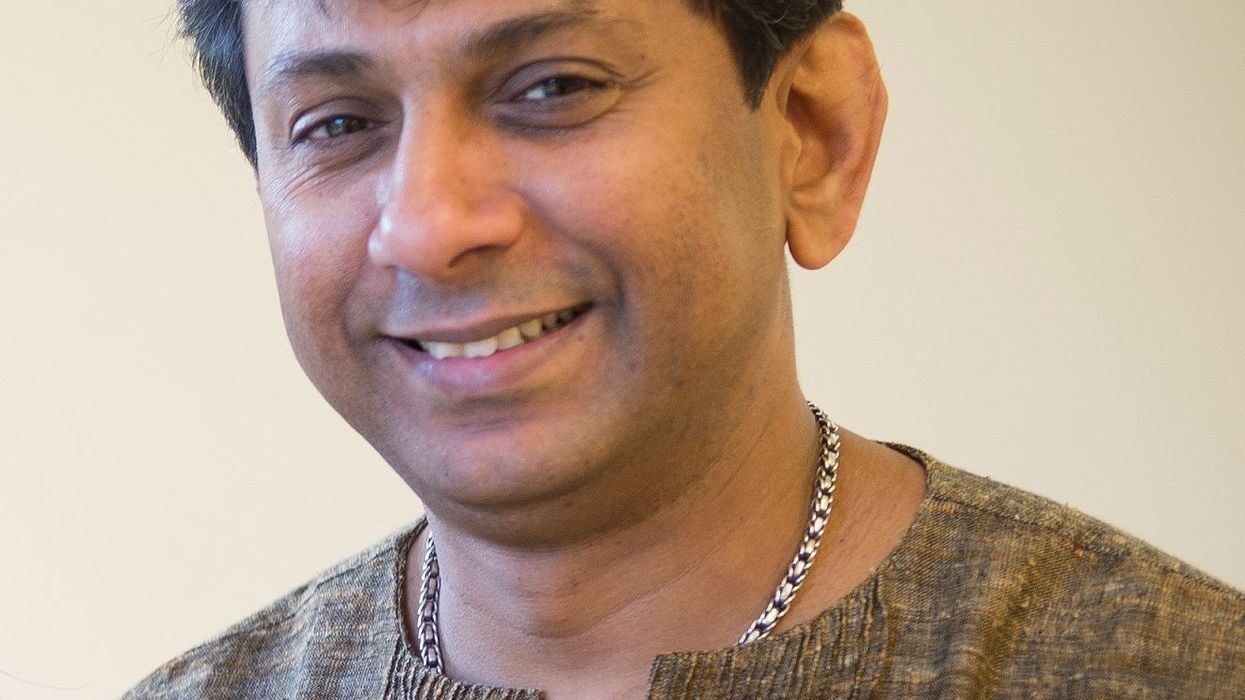HAVING trained extensively under leading names and educational institutions, award-winning composer and vocalist Yadav Yadavan has been connected to music from a very young age.
Although he has performed live globally, some of his most enduring work has been in the UK. Since 2002, Yadavan has collaborated with his wife Nina Rajarani MBE and her professional Harrow-based dance company, Srishti.
That partnership has led to him composing great original music scores for a whole host of dance shows, including their latest production Sevens, which is currently on a UK tour.
His methodical approach, which includes connecting to the cast, choreography, subject and spontaneity of the piece has resulted in another winning dance score. In between all that, he also teaches Karnatik vocal music to a new generation. Eastern Eye caught up with the multi-talented maestro to discuss music, Sevens, and magical partnership with his dancer-choreographer wife.
What first connected you to music?
My birth into an artistic family, primarily. Learning music was part of an everyday routine in my family and extended family, so everyone was involved, by default. It wasn’t just music, many in my family are dancers too, so I learnt music with a specific understanding of its context in dance.
You have performed globally, but what has been most memorable?
It was creating the musical score and performing for The Place Prize competition in 2006 with the piece Quick, choreographed by my wife Nina Rajarani. The Place Prize was Europe’s largest dance choreography competition, sponsored by Bloomberg. Nina’s piece won that year, and it was a career highlight to have been the composer for that work. British composer Brian Eno was on the judging panel and his congratulating me personally was memorable.
What has the experience been like working with your wife Nina Rajarani MBE and composing for her live shows?
Nina is a perfectionist beyond perfect and hates short cuts. I have to do many rounds of composing before Nina approves anything. The thing with composing for your wife is that you carry home the work and the work-in-progress phase never ends! There is ongoing constant tweaking.
Tell us about the music you have created for her latest show Sevens?
Sevens has been a very different experience as I’ve collaborated with Shammi Pithia on the music. It was a new learning experience, as we have completely different backgrounds. The music for Sevens has hugely varying textures. Some sections are wholly classical, and others have a world music feel. There is something in it for all tastes in music.
How does Sevens compare to other shows you have worked on?
This is a collaboration between Kathak and Bharatanatyam, so the music had to account for that, which was a learning curve for me. As it was our first project after Covid, it had a special significance in terms of the recovery and survival of the arts sector. Everyone came together feeling excited about being able to work in a common physical space again.
Do you have any favourite musical moment in the show?
Yes, when I improvise without constraints in my duet with Nina, where we both complement each other; the dance and music feed off each other. It is different for every show as it is improvised. I love unpredictability.
What else can we expect from you?
Singing, singing and more singing!
Why should we come to watch Sevens?
It has so much variety packed into it, with huge skill displayed by all the performers. There isn’t a second of boredom in the whole show. It is very relatable, even for those not initiated into the arts, and deals with themes that are universal, not specific to any race or religion. So, it is for everyone.
Why do you love music?
I love it because it is a natural form of expression for any living being. It is the only thing that can trigger the super consciousness beyond the superficial layer of the brain (and serves as a mind healer). A couple of quotes that sum up what music means to people, even those who aren’t musicians: “Without music, life would be a mistake” (Friedrich Nietzsche), and “If I were not a physicist, I would probably be a musician. I often think in music. I live my daydreams in music. I see my life in terms of music. I get the most joy in life out of music.” (Albert Einstein).
Srishti – Nina Rajarani Creations’ Sevens tours the UK until July 5.
Visit www.srishti.co.uk




